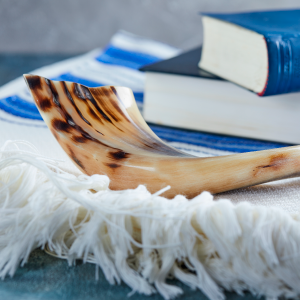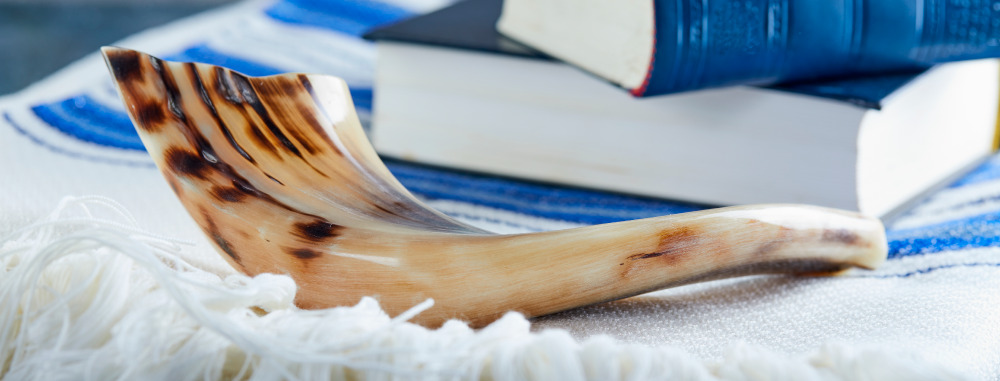
From Kapparot to Selichot
By Rabbi Sergio Bergman, WUPJ President
Yom Kippur is literally the day of atonement. Since the destruction of the Temple in Jerusalem, not only have the casts of the people of Israel been eliminated – we no longer have priests – but sacrifices have also been extinguished.
Today, each one of us is a priest among the people of Israel: we are responsible for the most sacred temple, which is our own body – mikdash meat – whose vital breath carries our soul. Today, instead of sacrifices, we offer our prayers, our meditation, our devotion, our study, our fasting and our reflection as Avodah Shebalev, an offering from the heart. There is no atonement anymore.
The ritual according to the detailed description in the Mishnah Yoma is clear and precise. On the holiest day of the year, the high priest used to place one hand on each of the two goats that had been drawn on the morning of Kipur, one for sacrifice and the other for atonement, Zeir La Hazazel, the scapegoat.
As soon as the high priest, in front of all the people, made sure that the scapegoat had been thrown off the outer terrace of the sacred temple, down the precipice, getting lost in the Judean desert, Avodah was concluded – the expiatory offering had fulfilled its function. Our sins had been atoned, the people, cleansed from all their sins through the ritual of Yom Hakippurim, the day of atonement.
In our days, no atonement is possible. We moved on from kapparot, from a ritual action of atonement on an animal, to a rise in reconciliation, reparation, repentance and deep reflection on the value of forgiveness.
This is not a historical evolution, but a spiritual one, yet, even today, there are those who want to atone through ritual, to rid themselves from responsibility, to leave to form what should be done in content. That is, using religion as superstition to start a new year clean and pure by exchanging the day of fasting and praying for a magical reward or the release from accountability for what one has done, and for the choices of action made during the year that has ended.
Forgiveness does not forget nor grant impunity; but it is a value. It involves the remembrance and reminder of everything that was done and which will not be erased, but healed and amended so that errors be transformed into learning throughout our own evolution in each and every new cycle. Aware that we are unable to be perfect in our actions, in Teshuva’, we hold ourselves responsible and accountable for what we have actually done. Forgiveness as a value is a detoxing act of love , which enables us accept that the freedom we celebrate implies accountability.
Let us then celebrate that we have let go of atonement to state the spiritual elevation of forgiveness. Only those who are brave, have the courage and are able to forgive and be forgiven, yet accepting implicitly that, although we are always free to act as we wil, we have not been freed from the consequences of our choices and actions. This is the freedom which has been granted to us as a gift. And this is precisely what we celebrate on Rosh Hashanah. We celebrate the creation of the world – Iom Harat Haolam – and in it, humanity, in the figures of Adam and Eve. This freedom enables us to choose and to do what we must. And that is what we have to thank Eve for. We thank her for guiding us to eat the fruit from the tree of knowledge of good and evil.
On Rosh Hashanah we were created and, therefore, we are free creatures and creative in discernment. We must not only exercise freedom, but the responsibility of choosing between good and evil. If we were not free, we would be unable to choose, and without choices, there is no possibility of falling into error. Our tradition does not see mistakes as sins, that load us with guilt, but acts of life to learn from to be responsible and accountable for as a learning experience. If we do good, we celebrate the blessing; if we do wrong, we make amends in recognition, repentance and forgiveness. This is how the annual cycle of the seasons of consciousness is registered. And as it happens in nature, omnipotence must die so that humility can be reborn, which, in turn, is nurtured by the value of forgiveness.
May we this Kippur assert the value of forgiveness as an act of mercy and love, which we not only ask from heaven, but also from ourselves, so that we may be reborn to a new year, aware that our mistakes make us human, and that the value of granting forgiveness to others and ourselves renders us in the image and likeness of the divine.
Originally published by Union of Reform Judaism in Latin America.

